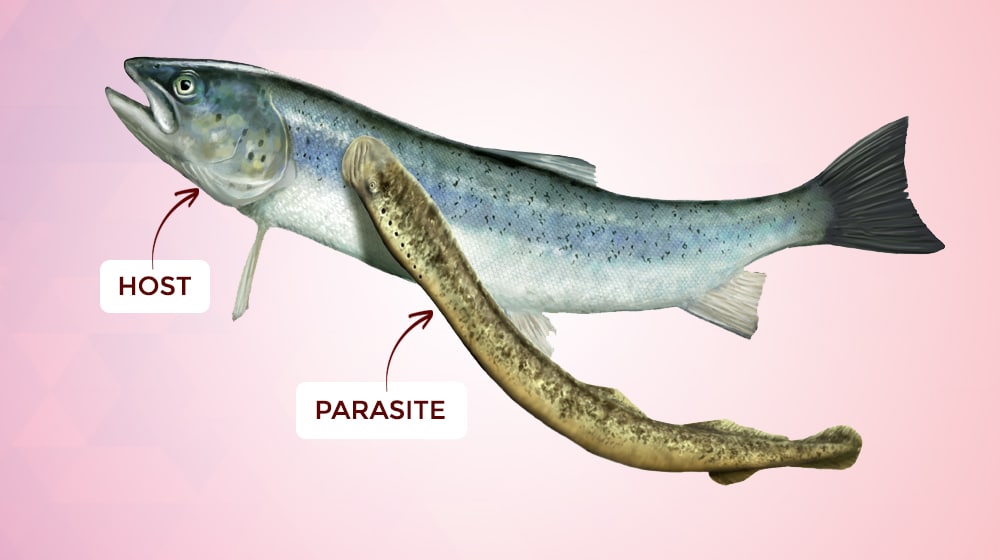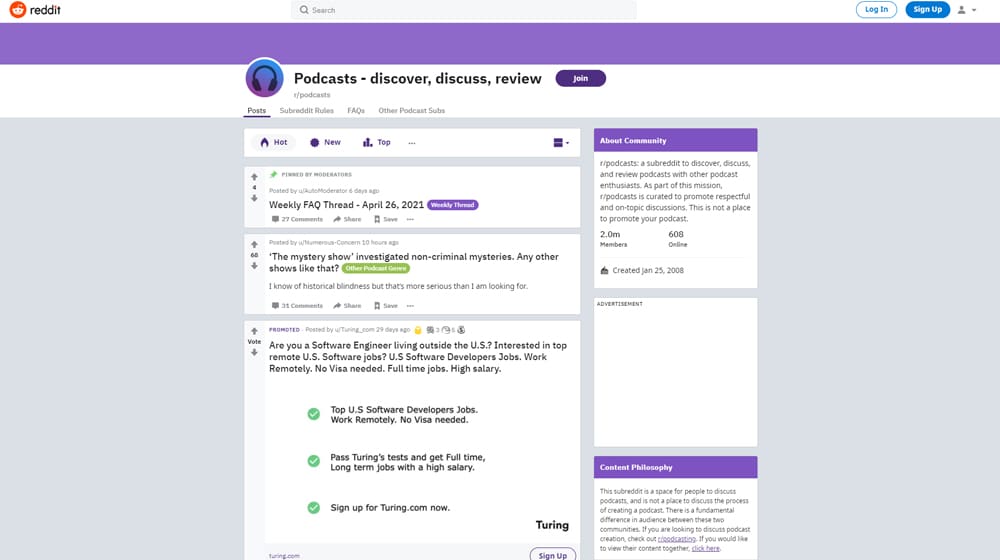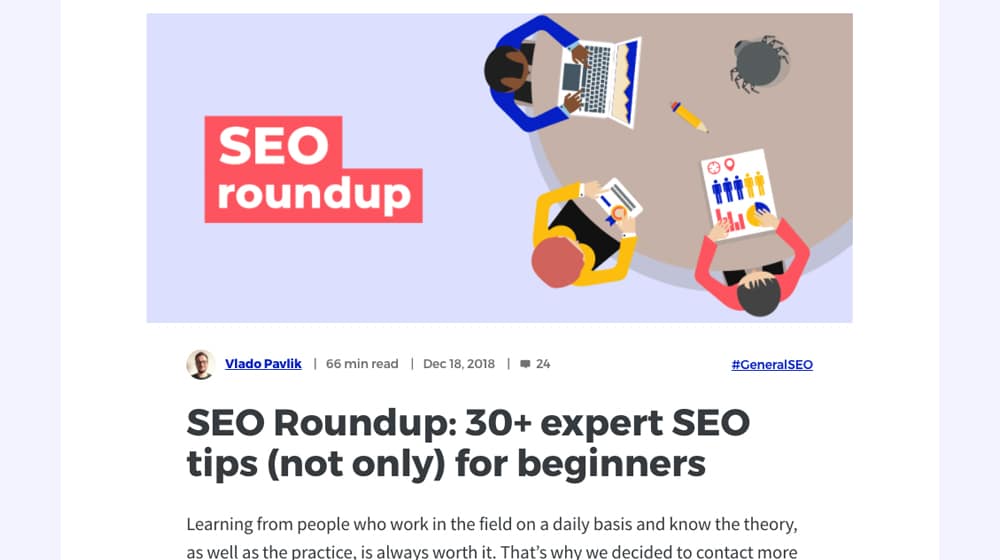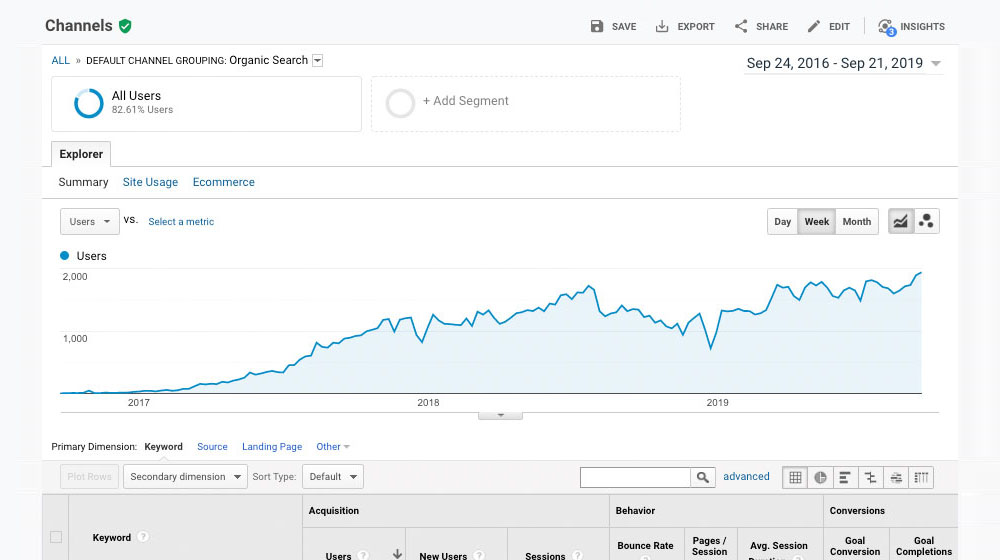What is Parasite SEO? How it Works, Efficacy & More

I speak with dozens of businesses every week, and I hear all sorts of interesting terms.
We talk about things like shoulder niches, vertical and horizontal growth, IR marketing, and so on - and I later write blog posts about them.
A new one that I was hit with this week was Parasite SEO. I'm aware of what it is, but I haven't heard it called by that name in a long time.
Parasites are creatures ranging from microscopic to full-size animals that have evolved to attach to a host and siphon off nutrition from that host, keeping themselves alive until either they reproduce and die, or the host dies, or both. They generally don't provide actual value to the host (if they did, they'd be symbiotes instead), but they aren't always deadly to their hosts.
How does this concept apply to SEO? If your website is the parasite in this scenario, a host would be the high authority website. How can you position yourself as a parasite without being purged with the marketing equivalent of an antiparasitic?
Read on to find out more!
How Parasite SEO Works
The Parasite SEO technique is a way of attaching yourself to a much larger and more powerful site and siphoning off some value from their domain authority. You don't intend to damage that site, but neither are you focused on providing anything in return.
Where a parasite in nature siphons off blood and nutrients, parasite SEO siphons off the nutrients of a website, including link juice, SEO value, search engine rankings, organic traffic, and page rank; if you guessed that the way you do this is with backlinks and off-page SEO, you've nailed it!

The goal of parasite SEO is to find domains that meet the following criteria:
- They're big, often much larger than yours, so much so that they won't really notice or care what you're doing, like a whale with a lamprey stuck to it.
- They allow (or encourage) users to post content. You don't want to work with them to produce a piece of content; you want to just be able to attach your content and link to them.
- They allow (or encourage) backlinks to the source of the content posted on them; ideally, they don't tag those links with NoFollow or UGC tags. No blog comment spam here.
- They're trusted, highly indexed, and relevant to your industry. Sometimes the platforms are generic, and other times they're industry-focused, but they'll rarely be niche-focused because those sites are often smaller and more tightly controlled.
Once you identify relevant high authority sites to attach yourself to, you create content relevant to your website, with backlinks to other content, and post them on those sites.
The sheer bulk of the site virtually guarantees some boost to your site, and the potential for traffic and further spread, backlinks, and more can all enhance the technique's efficacy.
Is Parasite SEO Legal?
Sure. Very little in the marketing and search engine optimization world is actively illegal, you know.
The unlawful things generally involve prohibited actions or crimes, like hacking a site to add your content, paying for sponsored content that isn't disclosed, or advertising items that aren't legal to be advertised on the venue you're using.
Something like parasite SEO is perfectly legal and can even be white hat.
Is Parasite SEO Ethical?
Mostly! It depends entirely on how you're doing it.
If your "creating content" method on a host site is blog comments, and they all look a lot like spam, that's not very ethical (or effective.)
Suppose your method uses legitimate guest contribution channels but subverts them with backlinks that you shouldn't be slipping into the content. In that case, you may be violating the trust of the site owner and the agreements you make when you publish those web pages. In many cases, though, parasite SEO is fine, which I'll discuss more at the end of this post.

Note that a few definitions of parasite SEO are floating around out there. I'm using the one defined on sites like Crowley Media Group and Enleaf. On the other hand, websites like Elite Digital Marketing define parasite SEO as a lot more of a shady technique involving domain squatting, malicious links injected into other sites, and creating fake, manipulative, or disingenuous sites to promote your site. This definition is about techniques that are much less ethical, which is why I'm not considering it worth writing about; you already know those things are bad, so don't do them. You don't need me to tell you that.
What Kinds of Host Sites Can You Target?
Above, I gave you a list of the criteria a site should fall into to be a valid target for parasite SEO.

What are examples of those kinds of websites?
- YouTube and Vimeo. As video hosting sites, anyone can create their content, and nothing stops you from making content promotional to your site, with links in the description, and working to promote that content using YouTube's algorithms or Vimeo's search system.
- Quora, StackExchange, and other Q&A sites. Any site where users can ask questions is an opportunity for you to write an answer that shows off your authority and links to your site for further reading. You can also abuse these in two ways: having a secondary account to post questions you then answer with your main account and pre-writing content on your site tailored to be "further reading" for the answer you post.
- Medium or LinkedIn. Both of these sites allow you to run your blogs, which can be variations of the content you post on your primary site. I don't recommend syndicating your blog content to them, but writing pared-down or lead-up versions of content that funnel people to your main site to keep learning about a topic can be a good idea.
- Reddit, one of the largest community-driven content hubs in the world, can be a great place to post with your expertise and link to your site for more info. They rank highly an appear in the SERPs for just about every topic you can think of, so a cleverly-placed post or comment can drive a lot of traffic. You can also do the Quora thing where you use an account to ask a question you then answer with your main. As an added bonus, millions of people specifically take to Reddit for search results. As a side note and warning, Reddit is keenly aware of self-promotional content, and there are plenty of famous examples of this backfiring spectacularly. Be tactful, and choose your subreddits carefully.
- Yelp, Manta, Google Business Profiles, and other local sites. These are all places where you can post your own business listing and keep the information up to date for an added boost to search visibility.
If done correctly, any site that would have shown up in the Alexa Top 100k Sites List (RIP Alexa) can be a good candidate for parasite SEO.
What Kinds of Content Can You Post for Parasite SEO?
Different techniques work best with different platforms. The content you can post can include the following:
1. Full-on contributory guest posts. While this is a lot less "parasite" and a lot more "symbiote," guest contributions can be an excellent way to get "official" exposure from high-tier industry sites.

Any site bigger and better than your own can be a good candidate to reach out to and try to post something for them. For example, a guest post for Forbes.com would qualify.
2. Participation in round-up posts. There are a ton of sites out there that publish weekly, monthly, annual, or sporadic round-up posts about certain topics. Look for these sites, and shoot them a message offering your contribution.

Start by providing your credentials (why they should add you to their round-up) and give them a solid quote with your expertise.
3. Press releases. Press release marketing is a whole thing, and I've written about it extensively before, so give those posts a look. Long story short, Google ignores press release links for SEO. That doesn't stop people from trying, though.

4. Q&A. Whether you use a shell account to post a question for you to answer or you just answer questions organically on your favorite go-to platforms, it can be a great and engaging way to leverage larger sites for your own gain.
There are always other techniques you can use too, that are less ethical and more likely to get you penalized. One is leaving fake reviews of your service under fake names on various review aggregators and social networks. This strategy can be effective, but astroturfed reviews are one of the oldest tricks in the book, so they're very hard to do in a way that isn't detected immediately.
How Effective is Parasite SEO?
It depends a lot.
The larger the host site is, the more potential gain you stand to get from this marketing strategy. At the same time, the larger the site is, the harder it is to actually get any attention, especially when thousands of other marketers are likely doing the same sort of things. It also depends on how aggressively you want to violate rules and norms to promote yourself. The shell account posting questions is one such example. It can effectively make you look authoritative and reactive without aggressive marketing, but it can also backfire spectacularly.
It also depends on the quality of the content you post and how authoritative you are in presenting it.
A half-assed answer isn't going to get you any attention on a site like Reddit or Quora, and indeed, it just becomes an opportunity for a competitor to come in and show you up. You really need to focus on high-quality content if you want to stand out enough to be worthwhile.
What Are the Benefits of Parasite SEO?
The benefits of parasite SEO are the same benefits you get from any marketing.

They include:
- Traffic. Since the goal of most parasite marketing is the backlink, you are likely to get some traffic from people interested in the topic. The more closely relevant the link you provide, the more traffic you can get from it.
- Link juice. The link itself can be a powerful part of your backlink profile long after the traffic it funnels to you dies back; Google's tracking of link juice is thorough and complex, but building links the right way can be exceptionally useful.
- Authority and thought leadership. When you show up everywhere across your industry with well-thought-out answers to complex questions (even if you posted the question under a fake name), people start to recognize your brand and attribute authority to you.
Done right, parasite SEO has all the benefits of traditional marketing, just faster and with less of a trade-off on your part.
What Are the Drawbacks of Parasite SEO?
Parasite SEO has drawbacks in two different ways.
- The first is that, if you're doing it right, it can be a significant investment in time and even money spent creating content. If you don't get decent returns on that investment, it ends up being a pretty big waste.
- The second is that if you don't do it right, it can backfire. For example, if you use a fake account to post questions that you then answer with your real account, fine, but if you do that with a bunch with the same pair, people will notice. People might also notice similarities in names, and site admins can often check IP addresses and see if you're posting from the same devices. If you're caught doing this, one or both of your accounts can be banned, your content can be removed, and you can even gain a negative reputation for trying to manipulate opinion.
Similarly, building backlinks like this can be detrimental if Google Search decides what you're doing is unethical.

They can penalize you and even remove you from the index entirely if they think what you're doing is egregious enough.
This Sounds a Lot Like Normal Marketing!
Well, that's because it basically is. What I've described above is basically a handful of marketing techniques bundled together – guest posting, link building, outreach, social media participation, and so on.
Truthfully, there's nothing parasitic about this kind of marketing. True parasite marketing is more like spam, and it's so far in the "obviously bad to do" territory that it's not even worth discussing.
So, if you're looking at link injections, comment spam, astroturfed reviews, and other shady techniques, you're going to have a worse time of things. On the other hand, if you're willing to do your research, create good content, and be targeted with your efforts, you can achieve some pretty incredible results.










May 08, 2023
Thanks for linking Elite Digital Marketing! We're incredibly thankful for the reference, hopefully we can work together in the future, :).
May 08, 2023
Hey Sean, no prob! Thanks for stopping by 🙂
October 13, 2023
I've been hearing about this parasite SEO, thanks for sheeding some light on it
October 13, 2023
Hey Victor, you're very welcome!
December 18, 2023
I'm an old school seo, started in early 2000s. What irks me these days is that they keep coming up with these silly new terms for everything. I hadn't heard about parasite seo so I looked it up. I expected it to be unique and different, but it ends up being nothing more than "building links on authority sites." Its nonsense. It seems people want to coin new terms to get attention.
December 22, 2023
Hey Steve!
I completely agree (I'm an old school SEO too, starting in the 2000's as well!).
There's so many of them now. Shoulder niches, Silo pages, Parasite SEO... they're all basically new names for existing concepts. A client of ours actually inspired me to write about this as they brought it up to me on one of our weekly calls.
At any rate, thanks for dropping by, hope you at least got some value out of my post!